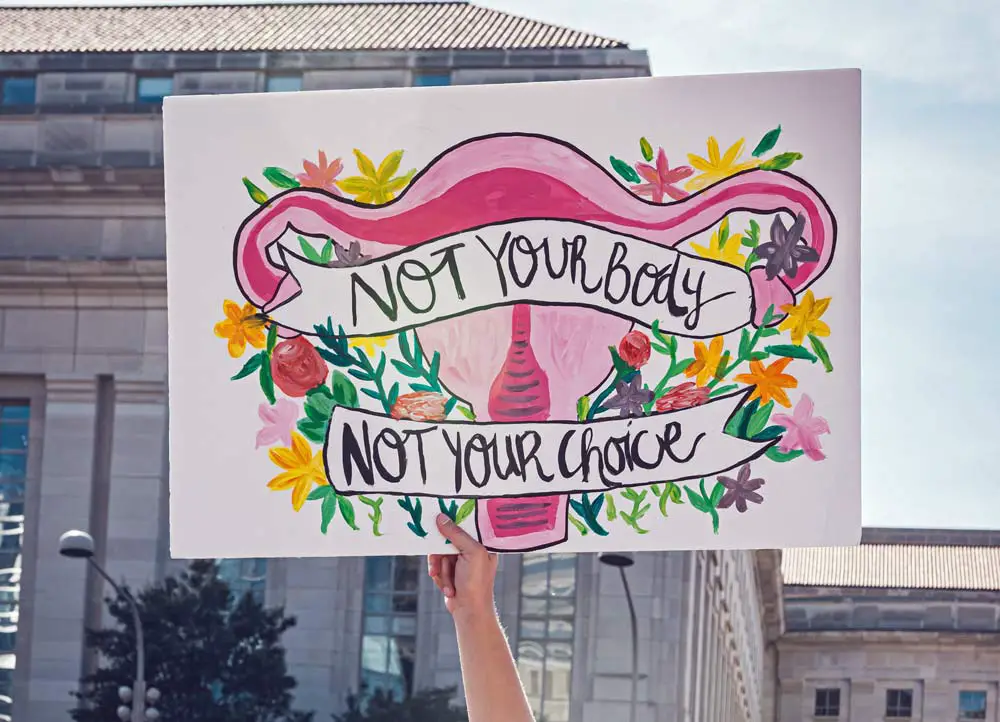
The Florida Supreme Court on Friday said it will hear arguments Sept. 8 in a case that could play a major role in the future of abortion rights in the state.
The court issued an order scheduling a hearing in a challenge to a 2022 law that prevented abortions after 15 weeks of pregnancy. The outcome of the case also will affect a law passed this year that would bar abortions after six weeks of pregnancy — and could determine whether a privacy clause in the Florida Constitution will protect abortion rights.
Attorney General Ashley Moody’s office is asking the Supreme Court to back away from more than three decades of legal precedents that have said the privacy clause applies to abortion rights. Moody’s office said in a March 29 brief that past rulings were “clearly erroneous” and that decisions about abortion restrictions should be left to the Legislature.
“Rather than allow the legislative process to unfold in response to new scientific and medical developments, this (Supreme) Court’s (past) abortion cases have disabled the state from preventing serious harm to women and children and stifled democratic resolution of profoundly important questions touching on the treatment of unborn life, when an unborn child is capable of consciousness and pain, and what medical procedures affecting the procreative process are safe and appropriate to allow,” the brief said.
But attorneys for abortion clinics and a doctor challenging the 15-week limit, known as HB 5, argued in an April 28 brief that the Supreme Court should maintain the longstanding interpretation of the privacy clause.
“Unable to justify HB 5’s extreme ban under existing law, the state instead asks this court to abandon precedent and overrule a fundamental constitutional right that generations of Floridians have relied on,” the plaintiffs’ brief said. “This radical request — which is unsupported by plain language, history, or law — would defy the will of the people and threaten to upend this court’s privacy jurisprudence well beyond abortion.”
Seven abortion clinics and physician Shelly Hsiao-Ying Tien filed the lawsuit in June 2022 challenging the constitutionality of the 15-week abortion law.
Leon County Circuit Judge John Cooper agreed with the plaintiffs that the law violated the state Constitution and issued a temporary injunction. But a panel of the 1st District Court of Appeal overturned the injunction, ruling that the plaintiffs could not show “irreparable harm” from the 15-week limit.
The appeals court’s decision allowed the 15-week limit to take effect, and the plaintiffs are asking the Supreme Court to reinstate the injunction. The Supreme Court in January agreed to take up the case but did not set a date for arguments until Friday.
With the case pending, the Republican-controlled Legislature and Gov. Ron DeSantis this spring approved the six-week abortion limit. But the six-week limit is contingent on the outcome of the challenge to the 15-week law.
Florida voters in 1980 approved a constitutional amendment that established state privacy rights. A 1989 Florida Supreme Court ruling set an initial precedent about the privacy clause protecting abortion rights, and subsequent decisions have followed that precedent.
If the Supreme Court finds in the 15-week case that the privacy clause does not protect abortion rights, it would effectively allow the state to move forward with the six-week limit. The Supreme Court has become far more conservative during the past four years, in part because of appointments by DeSantis.
Meanwhile, a coalition of groups in May began a drive to try to pass a constitutional amendment in 2024 to ensure abortion rights. The proposal, spearheaded by the political committee Floridians Protecting Freedom, would seek to ensure abortion rights up to fetal viability, which has generally been interpreted as about 24 weeks of pregnancy.
–Jim Saunders, News Service of Florida





























Michael Cocchiola says
The Florida supreme court will do as DeSantis demands. It is his creation and beholding to him. It is a court in name only.